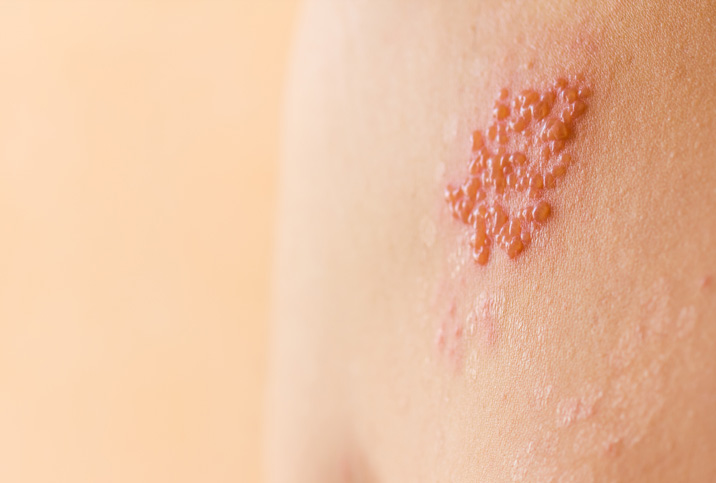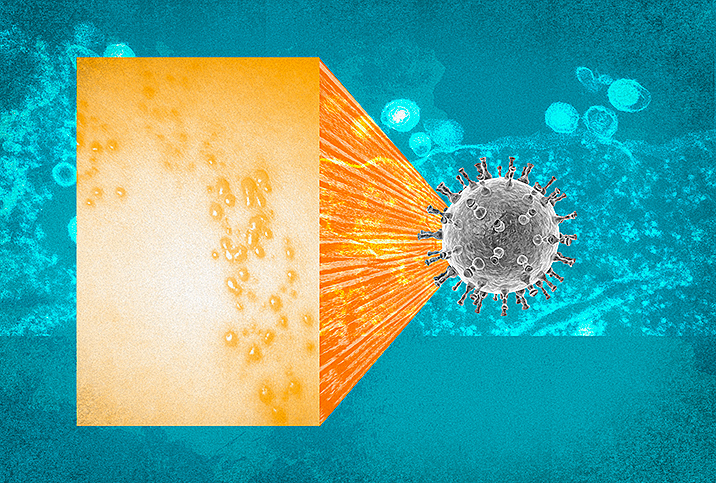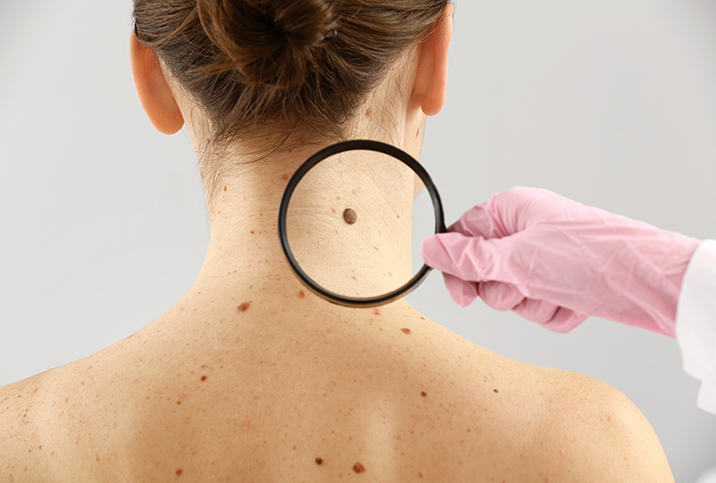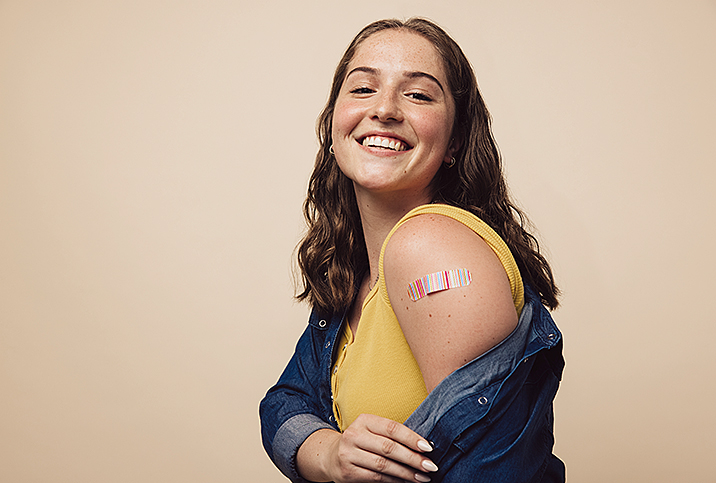You Really Don't Want to Have Shingles

You've probably heard of shingles, or herpes zoster, as it's known in medical fields. Statistically, it's fairly common as it affects an estimated 1 in 3 people in the United States.
"Shingles is a painful rash caused by reactivation of the varicella-zoster virus—the same virus that causes chickenpox," explained Lafina Diamandis, Dip BSLM/IBLM, general practitioner, lifestyle doctor and founder of DEIA Health, based in London.
Shingles often appears as tingling on the skin, followed by itching and pain. Eventually, you develop a rash, which starts as red blotches that then develop into fluid-filled blisters. It is usually present on only one side of the torso or face. Other potential symptoms include fever, chills, headache and upset stomach.
It can be painful, and there can be complications, but vaccination is available to prevent this infection for some people.
What causes shingles?
Shingles and chickenpox are extremely different illnesses, but are caused by the same virus, varicella zoster virus.
"Anyone who has had chickenpox can develop shingles," Diamandis said.
Once a person has recovered from chickenpox, the virus remains dormant in the body. It can then be reactivated months or years later.
"The virus is usually reactivated if you have a weakened immune system due to stress, medications or diseases that suppress the immune system," she added. "Only people who have had chickenpox can have shingles."
However, if someone hasn't had chickenpox, they can catch it from someone with shingles, said Thuva Amuthan, a general practitioner, cosmetic doctor and founder of Dr.Derme skin clinics in England.
So while you can't give someone shingles directly, you could pass on the virus via open blisters. This sequence could cause someone to develop chickenpox if they never had it, which could put them at risk for shingles later in life.
Amuthan explained that the main groups of people at higher risk of shingles include:
- Anyone taking medication that suppresses the immune system
- People who have a condition, such as cancer or HIV/AIDS, that weakens the immune system
- Older people, especially those older than 70
"The older you are, the more severe the symptoms can be," Diamandis said.
Shingles complications
The risk of complications, some of which can be serious, also increases with age.
"One of the most common complications is post-herpetic neuralgia, a burning pain which can last for weeks, months or even years after the rash has resolved," Diamandis said, adding that this particular issue is very common, with around 1 in 5 people developing post-herpetic neuralgia after shingles.
"Although post-herpetic neuralgia can happen at any age, 80 percent of all reported neuralgia is in those over 50 years of age," Amuthan said, explaining shingles usually presents with pain many days before the rash. As the virus becomes reactivated, it spreads along the nerves, causing damage.
"If it spreads to the nerves affecting your face, it can lead to drooping of your face and hearing loss," he added. "So you need to seek immediate medical attention. If you have a suppressed immune system, shingles may affect a larger area."
It's especially important to contact your healthcare provider when you notice the rash.
"Your doctor can offer antiviral medication to help reduce the severity of the rash and the chances of getting post-herpetic neuralgia," Diamandis said. "This medication is most effective if taken within the first three to five days."
She added that there are two other potential complications:
- Herpes zoster oticus (Ramsay Hunt syndrome). Shingles lesions are found in and around the ear and can cause facial droop and symptoms such as tinnitus and vertigo.
- Herpes zoster ophthalmicus. Lesions in and around the eye can lead to vision problems and even blindness.
The Centers for Disease Control and Prevention (CDC) states that rare complications of shingles can include pneumonia, brain inflammation (encephalitis) and death.
The best way to protect yourself
"Vulnerable groups who have never had chickenpox should avoid contact with anyone who has shingles whose rash is still oozing fluid until the rash has dried out, as this is when it is most infectious," Diamandis explained.
Diamandis recommended that if you've had chickenpox, maintain a healthy immune system by taking a holistic approach to your health and well-being.
"For example, if we look at the four pillars of health—nutrition, exercise, sleep and relaxation—there's a lot we can do to support and optimize our immunity," she added.
According to Diamandis, you can help maintain a healthy immune system in the following ways:
- Eat a healthy, balanced diet, ideally rich in whole foods and plants. This helps support a healthy gut microbiome, which helps us to maintain a healthy immune system.
- Exercise regularly and get quality sleep, both of which are known to play a vital role in how well the immune system's cells can function.
- Try stress management and relaxation time. This is essential as stress hormones suppress the immune system, making us more susceptible to catching infections.
High-risk individuals may want to consider the shingles vaccine.
In the U.S., the CDC recommends two doses of the shingles vaccine, Shingrix—a recombinant zoster vaccine—if you're age 50 or older. Your primary care doctor can give you the shots in your upper arm, separated by two to six months. The vaccine is more than 90 percent effective at preventing shingles and stays strong for at least seven years, although some doctors may suggest another shot after five years. Minor side effects, including discomfort in the arm where the vaccination took place, go away naturally after two to three days.
The CDC also recommends the Shingrix vaccine for adults age 19 and older who have weakened immune systems because of an illness, therapy or medication.
"A shingles vaccination can help you avoid getting the condition, and if you've had shingles before, it can stop you from getting it again," Amuthan explained.
If you're approaching age 50 or in a high-risk group, it's worth protecting yourself with the vaccine to help avoid shingles and the potentially severe complications it can cause.


















